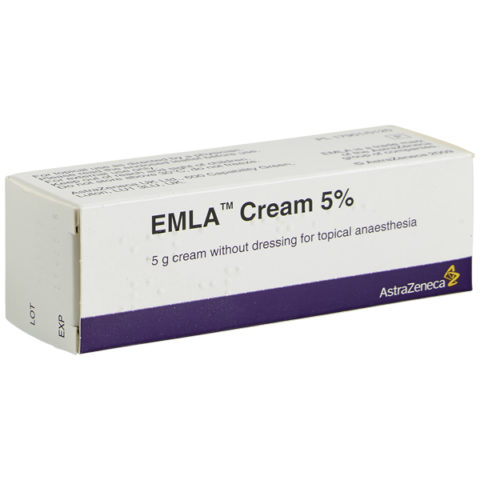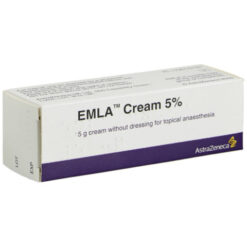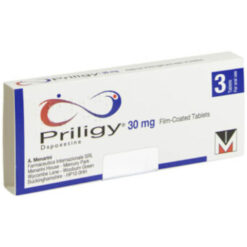-
NHS
-
Oldham Services
-
Shop
-
Help & Advice

£11.50
Variety of delivery options including next day & free delivery.
Pharmacy, clinic and prescribers based in Greater Manchester.
Start your treatment with a quick and free online consultation.
Variety of delivery options including next day & free delivery.
Pharmacy, clinic and prescribers based in Greater Manchester.
Start your treatment with a quick and free online consultation.
Fill in a quick online consultation for our licensed pharmacists to review.
Our pharmacists will review your treatment to ensure it’s suitable.
Your treatment will be delivered to your door quickly & discretely.
| Medication Name | Emla Cream |
| Type and Form of Medicine | Topical Anaesthetic Cream |
| What it Does | Treats Premature Ejaculation and Numbs Skin |
| Active Ingredients | Lidocaine, Prilocaine |
| Strength | 2.5% Lidocaine, 2.5% Prilocaine |
| Size | 5g Tube |
| Patient Information Leaflet | Emla Cream Patient Information Leaflet |
Emla Cream is a topical anaesthetic used to numb the skin. It contains two active ingredients, lidocaine and prilocaine, which work together to provide local anaesthesia. This cream helps reduce pain and discomfort during medical procedures or minor skin surgeries. It also treats premature ejaculation by numbing the skin, which can help delay ejaculation.
Emla Cream treats premature ejaculation by numbing the skin of the penis, which can help delay ejaculation. This can improve sexual performance and satisfaction. Besides treating premature ejaculation, Emla Cream numbs the skin before minor medical procedures, such as needle insertions, blood tests, or minor skin surgeries. It can also be used before tattooing or laser treatments to reduce pain.
Emla Cream works by blocking nerve signals in the skin. The active ingredients, lidocaine and prilocaine, penetrate the skin and temporarily block the pathways that transmit pain signals to the brain. When applied to the penis, the cream numbs the area, reducing sensitivity and helping to delay ejaculation. This numbing effect can last for a short period, allowing for improved control over ejaculation.
Emla Cream is suitable for adult men who experience premature ejaculation and seek to improve their sexual performance. It is also suitable for individuals needing local anaesthesia for minor medical procedures or skin treatments.
However, Emla Cream may not be suitable for individuals with certain conditions or allergies. Do not use Emla Cream if you are allergic to lidocaine, prilocaine, or any other ingredients in the cream. Avoid using the cream on broken or inflamed skin, as this can increase the risk of side effects. Consult your doctor or pharmacist before using Emla Cream if you have a history of heart problems, liver issues, or methemoglobinemia.
Apply Emla Cream about 30 minutes to 1 hour before the procedure or sexual activity. The numbing effect can last for a short period, so timing is important.
For treating premature ejaculation, use Emla Cream as needed, but do not exceed the recommended dosage. Consult your doctor or pharmacist for specific instructions on how long to use the cream.
Like all medications, Emla Cream can cause side effects. Below are some common, uncommon, and serious side effects you may experience.
For a full list of side effects, please refer to the Emla Cream Patient Information Leaflet.
Active Ingredients: Lidocaine 2.5%, Prilocaine 2.5%
Other Ingredients: Polyoxyethylene hydrogenated castor oil, Carbomer 974P, Sodium hydroxide, Purified water
EXCELLENT
Page content authored by Amjad Khan, last reviewed by Sakib Mohammed on 2nd January 2025.



